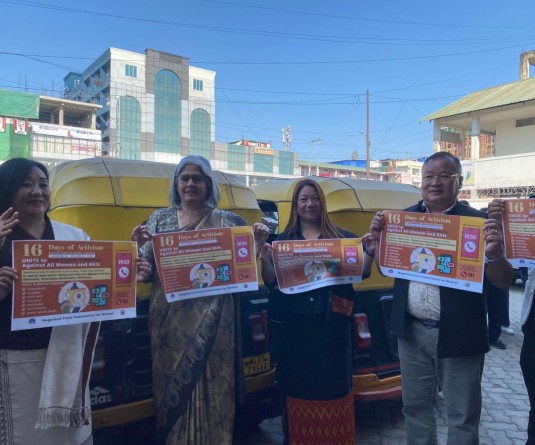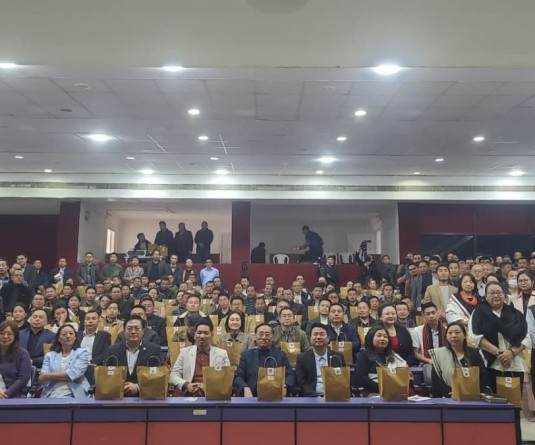
Judicial Inquiry Commission shares summary of 58-page report and recommendations
Morung Express News
Dimapur | June 3
Three months after the completion of judicial inquiry on the March 5, 2015 jail break-in incident in Dimapur, the first public declaration on the contents of the Judicial Inquiry Commission’s (JIC) report was made on June 3. The JIC headed by Justice (retired) BD Agarwal as chairman and retired District & Sessions Judge, Veprasa Nyekha as member, had submitted the report to the Nagaland state government on March 9, 2015.
Addressing a press conference today the NAPTC conference hall, Chumukedima, the JIC informed that the report was first handed over to the Chief Minister on March 9 and to the Chief Secretary on March 10. According to the JIC, the Nagaland State government was supposed to make public the report through the media. However, this was not done so. This, therefore, may perhaps be the first instance in Nagaland for a government instituted inquiry to directly share its findings and recommendation.
The entirety of the 58-page report was however not disclosed as the JIC said, “Some findings of the report will not be disclosed, the disclosure of which will be left to the government’s discretion.” Only a summary of the report highlighting the JIC’s recommendations was released.
A general lack of coordination among officers, lack of proper riot control training and equipments and an infirm prison security set up were pointed out to be the main factors behind the March 5 incident.
Observing the break-in at the Central Jail could have been avoided had “lapses and faults” been taken care of earlier; a number of recommendations were made to the government.
Improving the overall security arrangement of jails by way of fortifying the existing prison complexes, CCTVs, metal detectors, alarms system and dedicated monitoring rooms were recommended. Stating that watch towers are a conspicuous feature of any prison, it added that guards manning such points be equipped with modern communications gadgets. Riot control equipments were also recommended for jail guards and in all police stations.
Another significant observation was the absence of water cannon. Citing statements of government officials examined during the inquiry, the JIC said that the only available water cannon was not deployed. There were contradictory versions on this particular aspect with some of the examined officials maintaining it could not be deployed because of road blockades while others maintained it was not in working condition. On the training of police and administration officials, the JIC said that many officers during examination admitted to having little or no training on “crowd management.” It also strongly recommended the posting of efficient and experienced officers at “sensitive places.”
Noting the incident was likely the “outcome of the people’s grievance against the alleged inaction of the civil administration to detect and deport” illegal immigrants, the JIC recommended that implementation of ILP be strengthened and updating of the National Register of Citizens in Nagaland.
As regards the aspect of establishing the forces and people responsible for the incident, the JIC said it would best be left to the CBI. As many as 47 written statements from NGOs, individuals, police and jail authorities and “oral evidence” from 30 government officials were stated to have formed the basis of the JIC’s report. Paucity of time was stated to have prevented it from recording evidence of others.
The inquiry was instituted on May 16, 2015 to ascertain the causes and circumstances leading to the incident of vandalism and forcible entry into the Central Jail, Dimapur on March 5, 2015 by a mob and killing of an under-investigation prisoner (UIP) and also the death of another person allegedly in police firing and “to ascertain the person/persons, group/groups responsible for the incident, lapses of dereliction of duty on the part of government officials, public authorities, etc.”






